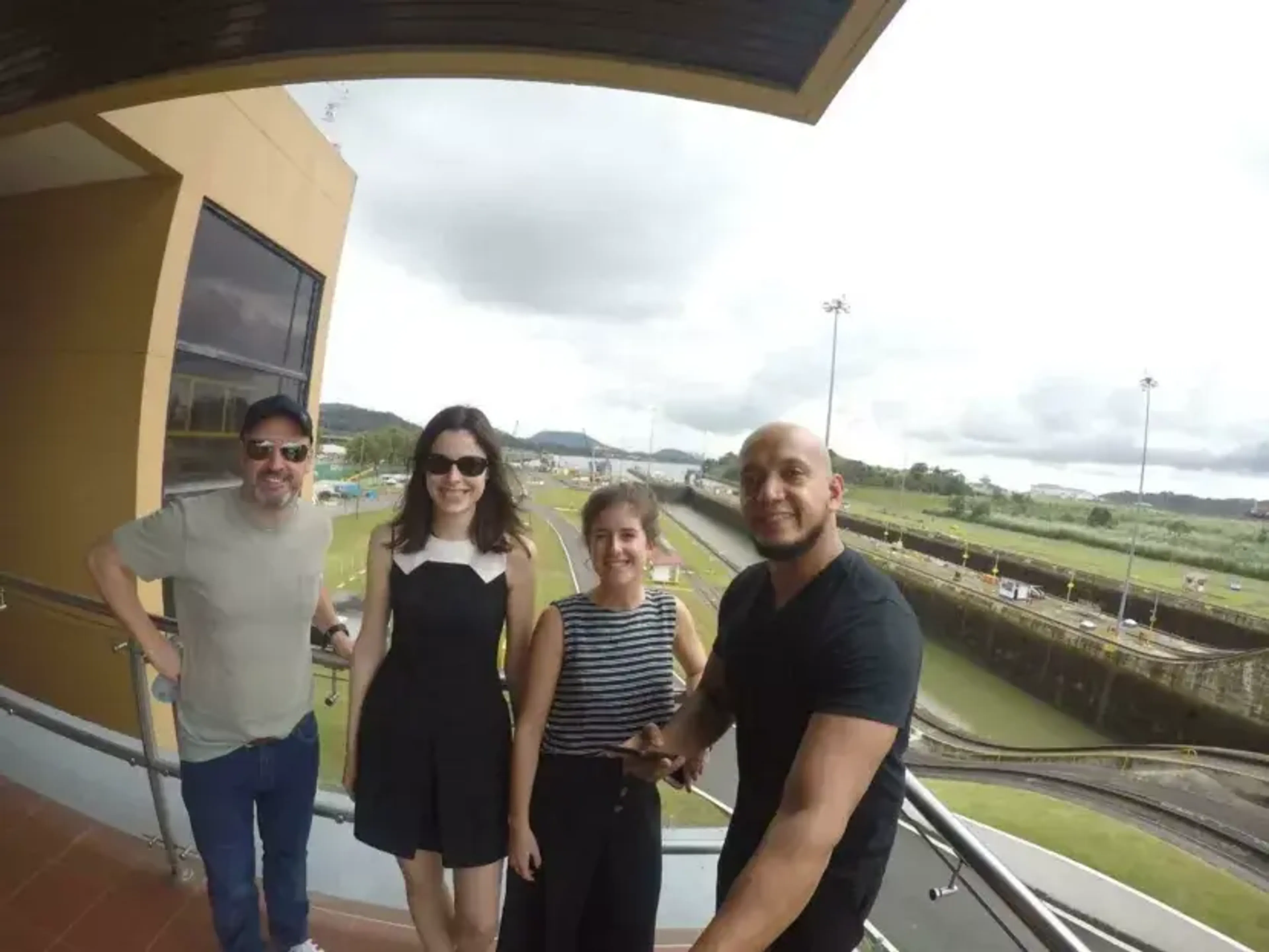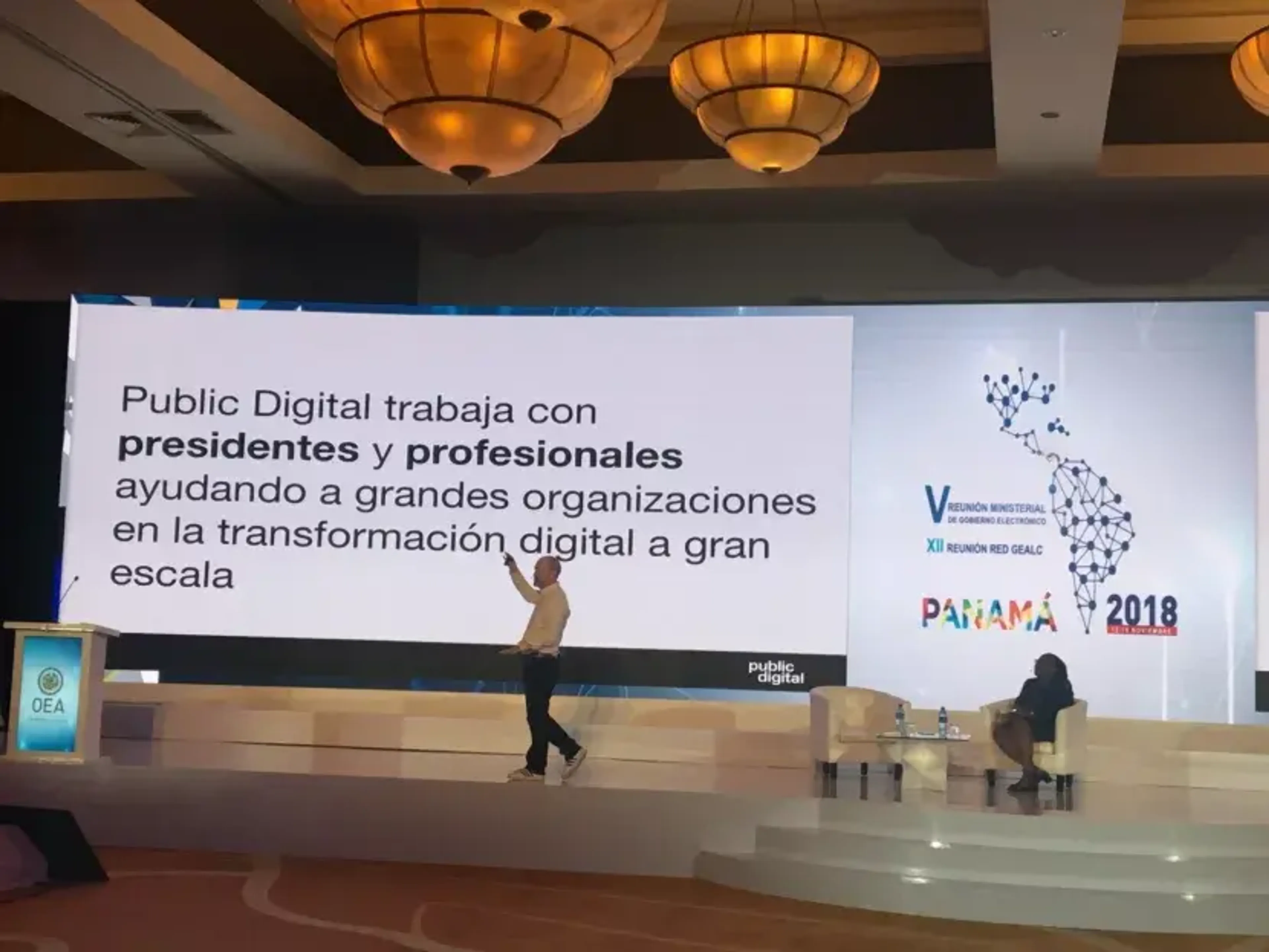
Angeles Kenny
Director
A couple of weeks ago, we went on a trip to Panama, which was a great experience. Our stay was divided in two parts: one with the AIG (the Government Innovation Authority of the Panamanian government) and the second with the Ministerial Meeting of Red Gealc, the electronic government network of Latin America and the Caribbean.
It was good to get to know the people, projects and needs in Panama. We met the work teams, the stories, their motivations, their working culture. We were able to present recommendations and a roadmap to improve their digital estate to provide better services to citizens. Then, we participated in Red Gealc with all the region countries and their digital government teams. It was a great event, from the opening with the President of Panama, the great hall for the presentations, and even the attendance of special guests and international delegations.
Personally, the trip meant a lot. It was my first field work with Public Digital, and for the first time in a long time I wasn’t representing any government. I was on the other side, and that was a novelty for me. But at the same time, I was back in a Latin American country, and I felt like fish in the water. The culture, the language, the people, were familiar territory to me. So, after four intensive days of work and meetings, I have some thoughts about the experience and Latin America current situation in digital government.
Although there is still a long way to go, the region has made great progress on digital transformation: from the connectivity infrastructure necessary to connect remote or precarious areas, the digitalization of procedures and transactions, or the development of training plans of information and communications technology. That said, I believe there are a number of things governments in the region can do to make quick, effective change:
In general, the way of working in digital teams is still traditional. Their skills are the usual profiles and are not enough to make a qualitative leap in digital transformation. Governments in the region need to put more focus on hiring developers, designers, user researchers and agile specialists.
As a break from work, our hosts took us to see the famous Panama Canal. A ship was crossing at the same time, so we could see how the locks system raised and lowered ships, to cross from one ocean to another. These ships, wherever they come from, are built to fit the channel. Upon entering the locks area, the ships are guided by eight ‘mules’ or electric towing locomotives, on both sides of the chambers. The history, the engineering, the teamwork required: it’s all really impressive.
It could be said that the digital transformation of Latin America works like the Panama Canal. As a ship loaded with products, whether from Europe or Asia, digital government initiatives have to be tailored to the needs of the region and its people. And that implies prior research, to avoid surprises and failures when ‘crossing the channel’, when implemented in the territory. The ships goes forward, and although it seems slowly, they do it much faster than by any other route. And they do it in parts, little by little, in stages. Digital transformation implies the same system, faster solutions to usual processes, but in stages, with pilot tests or many improvement models, to test how they impact on users. And, like the mules that guide the ships, governments have to be guided by locomotives of values to avoid detours and catastrophes, by networks of work such as Red Gealc that provide mutual collaboration, or by international institutions that support and finance projects.
Like the canal, transformation in Latin America requires a great effort. Starting, continuing and achieving it is not an easy task, but it can be done if we have the approach, the capacities and the necessary support to provide better services to people.





Director